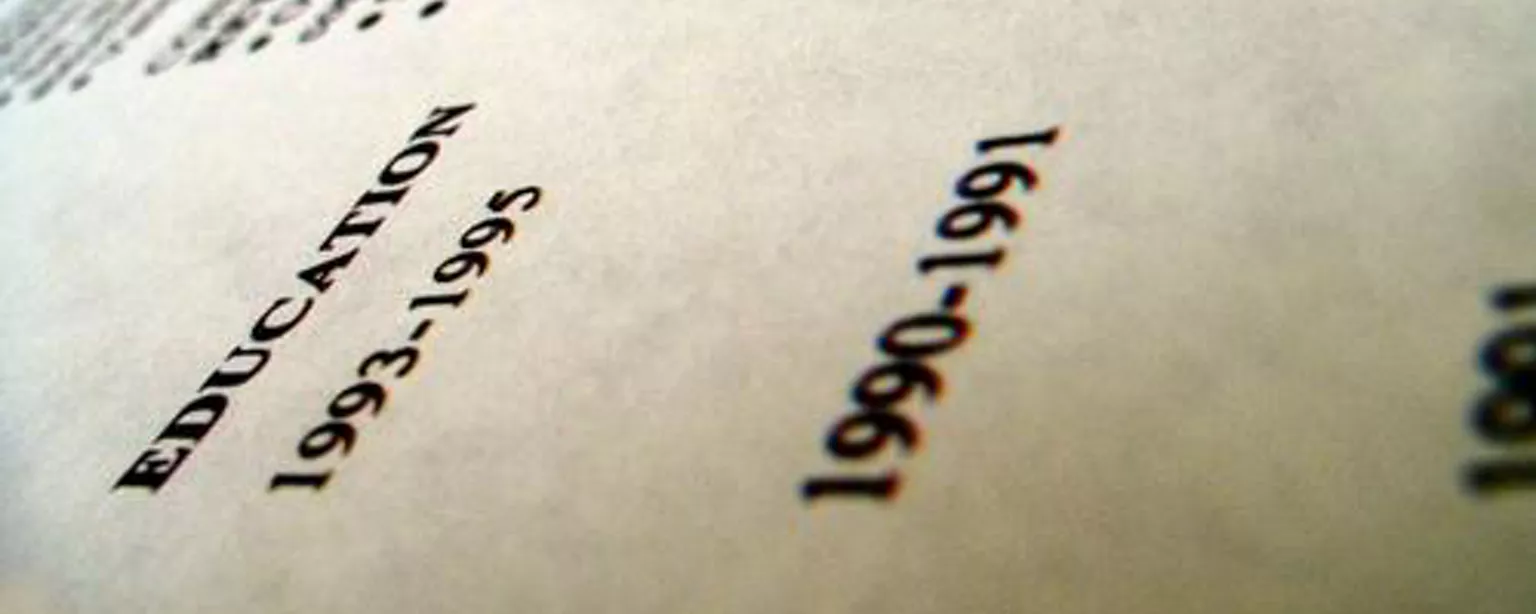The prominence of the education section of your resume relates to where you are in your career. If you’re a recent graduate, for example, it makes sense to place education-related information near the top of the document. But as your work history develops, details about your academic career should move toward the bottom.
Employers are more interested in your recent professional accomplishments than scholastic achievements from years ago. These experienced professionals included dated academic details:
“EDUCATION: I took all of the required classes in high school, including government, literature and history of rock.”
Did you study geology or Led Zeppelin?
“EDUCATION: I won an award for an essay in first grade and got my picture taken with the principal. That was a big win. My parents took me for ice cream.”
A “sweet” victory.
“EDUCATION: In junior high, I wrote and directed a play based on Greek mythology.”
A Herculean accomplishment.
“EDUCATION: I’ll be honest, I learn from experience, not the classroom. What I learned in all of the classes I took diluted my talent compared to what I was producing before I took the classes. So, what I learned was good to know but will never be used.”
Good to know, indeed.
“EDUCATION: Coming from an educated background, I feel that America’s education system is OK. I also feel that paying for education in certain cases is cool.”
Cool.
“EDUCATION: I was a four-sport high school athlete, although graduation was 20 years ago.”
And your experience since then?







